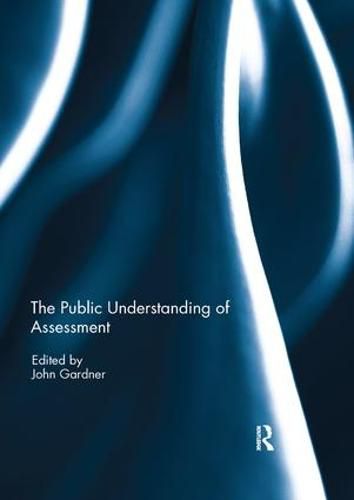Readings Newsletter
Become a Readings Member to make your shopping experience even easier.
Sign in or sign up for free!
You’re not far away from qualifying for FREE standard shipping within Australia
You’ve qualified for FREE standard shipping within Australia
The cart is loading…






Assessment of educational achievement, whether by traditional examinations or by teachers in schools, attracts considerable public interest, particularly when it is associated with ‘high stakes’ outcomes such as university entry or selection for employment. When the individual’s results do not chime with their or their teachers’ expectations, doubts creep in about the process of assessment that has arrived at this result. However, educational assessment is made up of many layers of complexity, which are not always clear to the general public, including teachers, students, and parents, and which are not easily understood outside of the expert assessment community. These layers may be organized in highly co-dependent relationships that include reliability, validity, human judgment, and errors, and the uses and interpretations of the various types of assessment. No-one could reasonably argue that the principles and complexities of educational assessment should be core learning in public education, but there is a growing realization that trust in the UK assessment system is under some threat as the media and others sensationalize or politicize any problems that arise each year. This book offers the first comprehensive overview of how the general public is considered to perceive and understand a wide variety of aspects of educational assessment, and how this understanding may be improved. This book was originally published as a special issue of the Oxford Review of Education.
$9.00 standard shipping within Australia
FREE standard shipping within Australia for orders over $100.00
Express & International shipping calculated at checkout
Assessment of educational achievement, whether by traditional examinations or by teachers in schools, attracts considerable public interest, particularly when it is associated with ‘high stakes’ outcomes such as university entry or selection for employment. When the individual’s results do not chime with their or their teachers’ expectations, doubts creep in about the process of assessment that has arrived at this result. However, educational assessment is made up of many layers of complexity, which are not always clear to the general public, including teachers, students, and parents, and which are not easily understood outside of the expert assessment community. These layers may be organized in highly co-dependent relationships that include reliability, validity, human judgment, and errors, and the uses and interpretations of the various types of assessment. No-one could reasonably argue that the principles and complexities of educational assessment should be core learning in public education, but there is a growing realization that trust in the UK assessment system is under some threat as the media and others sensationalize or politicize any problems that arise each year. This book offers the first comprehensive overview of how the general public is considered to perceive and understand a wide variety of aspects of educational assessment, and how this understanding may be improved. This book was originally published as a special issue of the Oxford Review of Education.